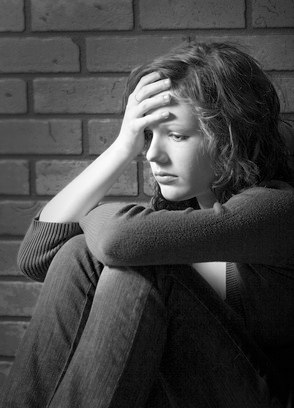 February is a month filled with pink candy hearts, chocolate (oh so much chocolate) and teddy bears. However, not everyone is aware that February is not only the month of love, but also the month of awareness – Teen Dating Violence Awareness Month.
February is a month filled with pink candy hearts, chocolate (oh so much chocolate) and teddy bears. However, not everyone is aware that February is not only the month of love, but also the month of awareness – Teen Dating Violence Awareness Month.
Teen dating violence is a silent epidemic that has crept its way into the lives of far too many teenagers. One in three teens report experiencing some form of abuse, while more than 2/3 of teens never report abuse to an adult. The effects of dating violence have a major impact on the social, physical and emotional growth of a young person. According to TeenDVMonth.org, over 80% of school counselors acknowledge that they are unprepared to deal with abuse matters among students.
The Effects of Dating Violence:
- Less attention paid to academics.
- Increased use of drugs and alcohol.
- Greater chance of teen pregnancy.
- Isolation from others.
- Sexual assault.
- Shame or guilt.
- Inability to maintain lasting relationships.
- Abandoning dreams or goals.
- Lack of self-confidence.
- Depression, anxiety, fear or suicidal thoughts.
For Parents:
Parents need to feel comfortable talking to their teens about dating violence. Three out of four parents have never talked to their kids about domestic violence. Now is the time to change that! February 4, 2014 is “It’s Time to Talk Day!” Together we can break the cycle of harmful relationships and teach our teens how to have healthy relationships. For tips on how to bring up dating safety and talking to your teen, visit Itstimetotalkday.org.
For Teens:
What does abuse look like?
- Physical Abuse: Use of force with the intent of causing fear or injury. Examples of this are biting, shoving, strangling, kicking or using a weapon.
- Emotional/Verbal Abuse: Non-physical behaviors such as threats, insults, constant monitoring, humiliation, intimidation, isolation or stalking.
- Sexual Abuse: Any action that impacts a person’s ability to control their sexual activities such as rape, coercion or restricting access to birth control.
- Digital Abuse: Use of technologies and/or social media networking to intimidate, harass or threaten a current or ex-dating partner. This could include demanding passwords, checking cell phones, cyber bullying, sexting, excessive or threatening texts, or stalking on Facebook or other social media.
Ten Warning Signs of Abuse
Abuse doesn’t discriminate against skin color, the amount of money in someone’s wallet or the car they are driving. Anyone, boy or girl can be effected. Listed below are a few of the common warning signs of abuse:
- Checking your cell phone or email without permission.
- Constantly putting you down.
- Extreme jealously or insecurity.
- Explosive temper.
- Isolating you from your family or friends.
- Making false accusations.
- Mood swings.
- Physically hurting you in any way.
- Possessiveness.
- Telling you what to do.
No one is immune to experiencing abuse. If you or a loved one is in a violent relationship, please get help. Please call the Hubbard House 24-hour domestic violence hotline at (904) 354-3114 or 800-500-1119. Hubbard House can help.
Other domestic violence shelters in Northeast Florida include:
Clay County: Quigley House, 904-284-0061 24-hour hotline
Nassau County: Micah’s Place, 877-228-7388 or 904-225-9979 24-hour hotline
St. Johns County: Betty Griffin House, 904-824-1555 24-hour hotline
If one of these shelters does not serve your county please call the Florida Domestic Violence Hotline at 800-500-1119.
ABOUT HUBBARD HOUSE: Founded in 1976 as the first domestic violence shelter in Florida, Hubbard House is a certified, comprehensive domestic violence center providing programs and services to more than 5,000 women, children, and men annually in Duval and Baker counties. While Hubbard House is most known for its emergency shelter, the agency also provides extensive adult and youth outreach services, school-based education, therapeutic childcare, batterers’ intervention programs, court advocacy and volunteer and community education opportunities. Visit www.hubbardhouse.org to learn more.
By: Amy Riggan
